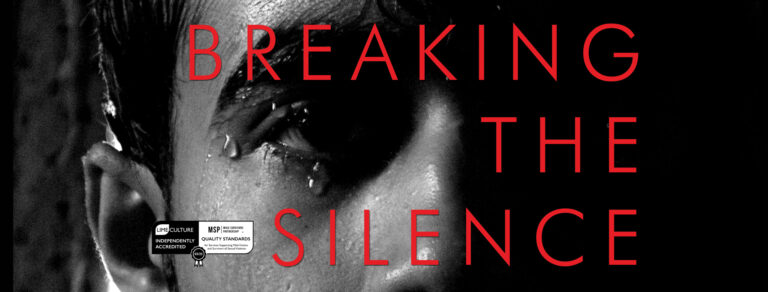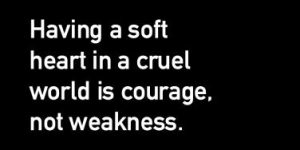
Page Description
Mandatory Silence: Exploring situations where enforced quietness or prohibition of speech is imposed and its impact on communication and expression.








Mandatory Silence: A Systematic Suppression of Truth
In a world where transparency is key to justice, the idea of “mandatory silence” represents a disturbing tactic used to prevent the truth from emerging. Whether through fear, manipulation, or institutional control, this silence becomes a weapon—a tool used to stifle dissent and keep inconvenient realities hidden. On this page, we will explore how this culture of silence has been imposed, the consequences it has had on those who challenge it, and the ongoing fight for the freedom to speak out and expose the truth.
Verplichte Stilte: Een Systematische Onderdrukking van de Waarheid
In een wereld waar transparantie essentieel is voor gerechtigheid, vertegenwoordigt het idee van “verplichte stilte” een verontrustende tactiek die wordt gebruikt om te voorkomen dat de waarheid naar boven komt. Of het nu door angst, manipulatie of institutionele controle is, deze stilte wordt een wapen—een middel om verzet te smoren en ongemakkelijke realiteiten verborgen te houden. Op deze pagina onderzoeken we hoe deze cultuur van stilte is opgelegd, de gevolgen ervan voor degenen die haar uitdagen, en de voortdurende strijd voor de vrijheid om te spreken en de waarheid te onthullen.
“Mandatory silence” refers to a policy or practice that requires individuals or groups to observe periods of silence for various reasons. Here are some key points related to “mandatory silence”:
Obligation to be silent: “Mandatory silence” implies a requirement or obligation for individuals or groups to observe silence during specific times, events, or situations. This can be enforced through rules, regulations, or cultural norms.
Purposeful silence: “Mandatory silence” may be imposed for various reasons, such as religious or spiritual practices, moments of reflection or mourning, maintaining discipline and order in certain settings, or as a form of protest or activism.
Time-bound silence: “Mandatory silence” is typically temporary and has a designated duration. It may last for a few minutes, hours, days, or even longer depending on the context and purpose.
Respect and compliance: Observance of “mandatory silence” is generally expected and enforced, and individuals or groups are expected to comply with the requirement as a sign of respect for the purpose or significance of the silence.
Cultural and contextual variations: “Mandatory silence” practices can vary across cultures, religions, organizations, and situations. It may be seen as a norm in some cultures or religions, while it may be unfamiliar or even considered inappropriate in others.
Potential impacts: Observing “mandatory silence” may have various effects on individuals or groups, including promoting introspection, reflection, and mindfulness, fostering a sense of solidarity or reverence, or creating discomfort or frustration in some cases.
Ethical considerations: “Mandatory silence” policies or practices may raise ethical questions related to personal autonomy, freedom of expression, inclusivity, and respect for diversity. Consideration of the rights and beliefs of individuals or groups affected by “mandatory silence” is important.
It’s important to note that the specific details and implications of “mandatory silence” can vary widely depending on the context, culture, and purpose for which it is implemented. It’s always recommended to understand the specific guidelines and expectations of any “mandatory silence” practice within its respective context.
“Mandatory silence,” “compulsory silence,” “obligatory silence,” and “non-disclosure of information” are terms that generally refer to requirements or obligations to refrain from speaking or disclosing certain information. The key points of these concepts may include:
Legal or contractual requirement: Mandatory silence, compulsory silence, and obligatory silence may refer to legal or contractual obligations to keep information confidential, not disclose it to others, or refrain from speaking about certain topics or matters. These requirements may arise from laws, regulations, contracts, agreements, or codes of conduct, and failing to comply with them may result in legal, financial, or other consequences.
Protecting sensitive or classified information: Mandatory silence or non-disclosure of information may be necessary to protect sensitive or classified information, such as trade secrets, intellectual property, proprietary information, or classified government information. It may be required to maintain the confidentiality, integrity, or security of such information, and prevent unauthorized access or disclosure.
Ethical or professional obligations: Obligatory silence or non-disclosure of information may be an ethical or professional obligation for certain individuals or professions, such as attorneys, doctors, therapists, counselors, or journalists. These obligations may arise from ethical codes, standards, or guidelines, and may require professionals to maintain confidentiality or protect the privacy of their clients, patients, or sources.
Compliance with organizational policies: Mandatory silence or non-disclosure of information may be required by organizational policies or procedures. This may include requirements related to data privacy, security, or confidentiality within an organization or specific work environment. It may also involve restrictions on discussing certain topics or matters related to the organization’s operations, strategies, or sensitive information.
Importance of discretion: Mandatory silence or non-disclosure of information may emphasize the importance of discretion, prudence, or confidentiality in certain situations. This may include refraining from sharing sensitive information in public, protecting personal or sensitive information of others, or maintaining confidentiality in sensitive or delicate situations.
It’s important to note that the specifics of mandatory silence, compulsory silence, obligatory silence, or non-disclosure of information can vary depending on the context in which they are used, such as legal, contractual, ethical, professional, or organizational requirements. It’s always advisable to seek legal, professional, or expert advice in specific situations to fully understand and comply with any obligations related to these concepts.
Bébé qui fume
28 okt. 2013